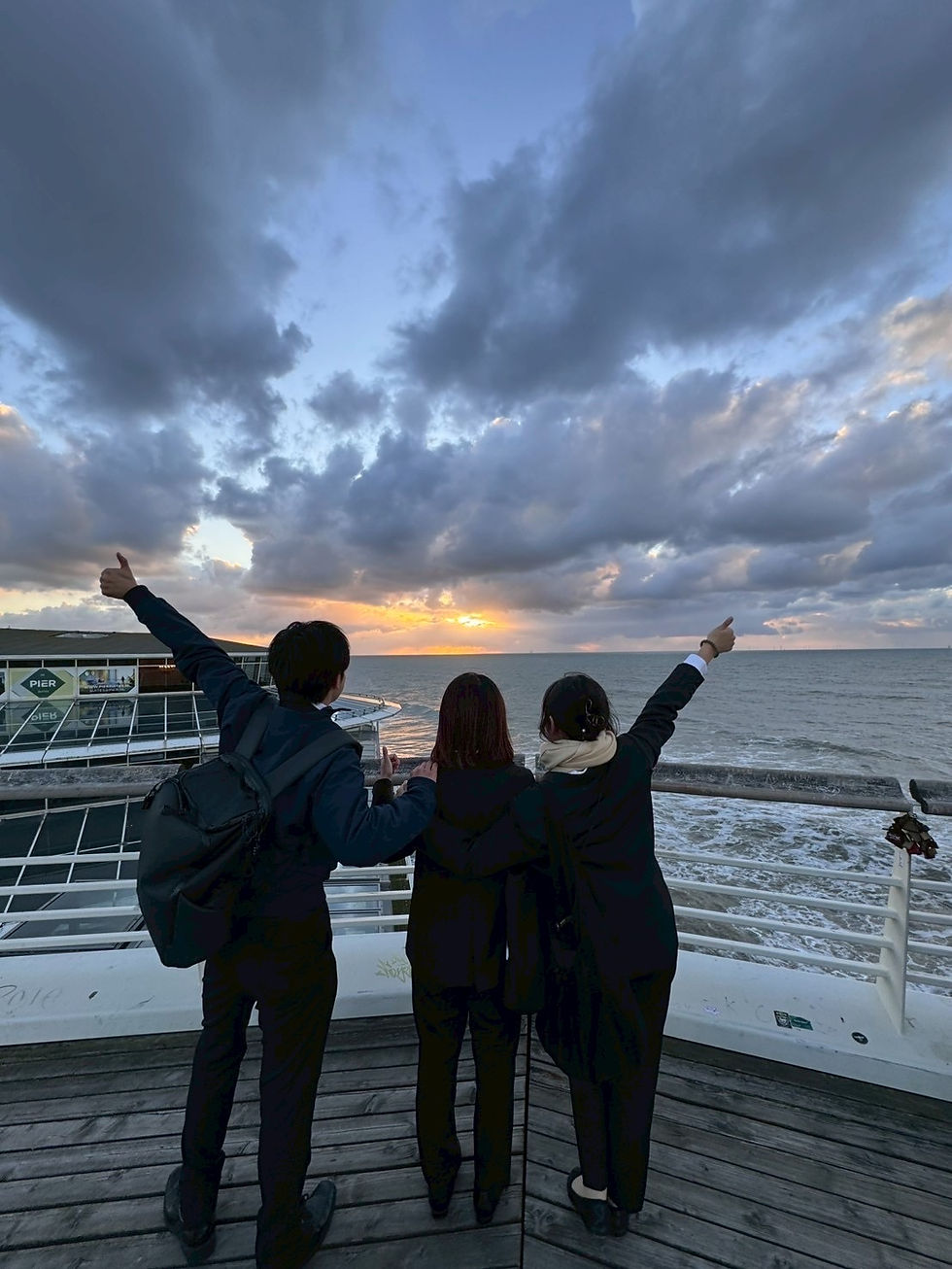Internship Report: The International Committee of the Red Cross
- Administrator
- 2022年3月18日
- 読了時間: 3分
M1 Reona FUKUHARA

©ICRC
An internship programme is one of the most significant steps for students pursuing their careers in the humanitarian sector because the experiences during the internship period will give impetus to being more professional in their future posts. In my case, I started my internship at the International Committee of the Red Cross (ICRC), on 6th September 2021 and finished on 7th January 2022. This experience enabled me to know the ICRC’s field activities, and I was always inspired by a range of ICRC’s work during my internship period. As I got involved with ICRC’s work more, my interest in humanitarian aid grew rapidly. In this article, I would like to introduce the work of the ICRC and share my internship experience.
Brief Introduction
The International Committee of the Red Cross is an impartial, neutral and independent organisation whose exclusively humanitarian mission is to protect the lives and dignity of victims of armed conflict and other situations of violence and provide them with assistance. The ICRC also endeavors to prevent suffering by promoting and strengthening humanitarian law and universal humanitarian principles. A case in point is helping detainees, which aims to secure the humane treatment and conditions of detention for all of them, regardless of the reasons for their arrest and detention. In Japan, the ICRC enhances humanitarian debate, contributes to humanitarian policy, cultivates government support, works with the Japanese Red Cross on public relations, and teaches the International Humanitarian Law (IHL). I worked at the Communication (COM) Unit, which has significant roles in reaching out to the public, updating information on humanitarian issues, and raising public awareness of the above ICRC’s mission.
Summary of the ICRC internship experience
In order to achieve the goal of the ICRC and the COM Unit, I engaged in many types of works: formulating proposals and editing monthly e-newsletters and the thematic newsletter: translating communication materials: conducting an interview and writing an article: and drafting posts for social media. I prepared e-newsletters and posts for Twitter and Facebook as my routine worked. It was a great opportunity to consider strategically what kind of information followers want to get from the social media posts; and how to increase the number of subscribers to e-newsletters. I tried to share gripping and precise information and news with the public by using photos and infographics based on the ICRC’s archives and research papers to arouse people's interest.
In addition to the above works, I translated ICRC’s communication materials about International Humanitarian Law principles into Japanese. Moreover, I was lucky enough to have an opportunity to conduct an interview with a Japanese delegate who had worked at several conflict zones and returned to Japan. Before the internship. IHL had been one of the academic subjects, though these experiences helped me know how IHL is a practical and effective measure to reach out to people in need.
Memorable experience/ Lessons Learned
What impressed me most was the staff’s attitude in trying to pursue their goals of realizing their ideal world. During an internship period, interns can access the ICRC’s internal network, which aims to keep step with all ICRC staff by providing field information from each field delegation and conducting many kinds of online seminars. In my case, I attended a symposium in which all ICRC staff participated, and they considered the future of humanitarian assistance and ICRC’s work.
This symposium enlightened me about how the ICRC maintains its principles and integrity.

The ICRC staff and intern ©ICRC
Conclusion
My experience at the ICRC was irreplaceable, and I believe that it gave me fruitful skills to contribute to the work at international organisations in the future. I appreciate the way I was guided through the internship by my supervisor Mr. Sato Shuzo, beginning with the opportunity to expand my knowledge in humanitarian issues and the IHL under his supervision. Also, I must give many thanks to Prof. Hiroshige Fujii, who gave me a huge number of opportunities so that I could try and grow up myself. I would like to fully use the granted experience and skills in my first mission in Ethiopia.
Japanese article is also available on the ICRC’s website.




コメント